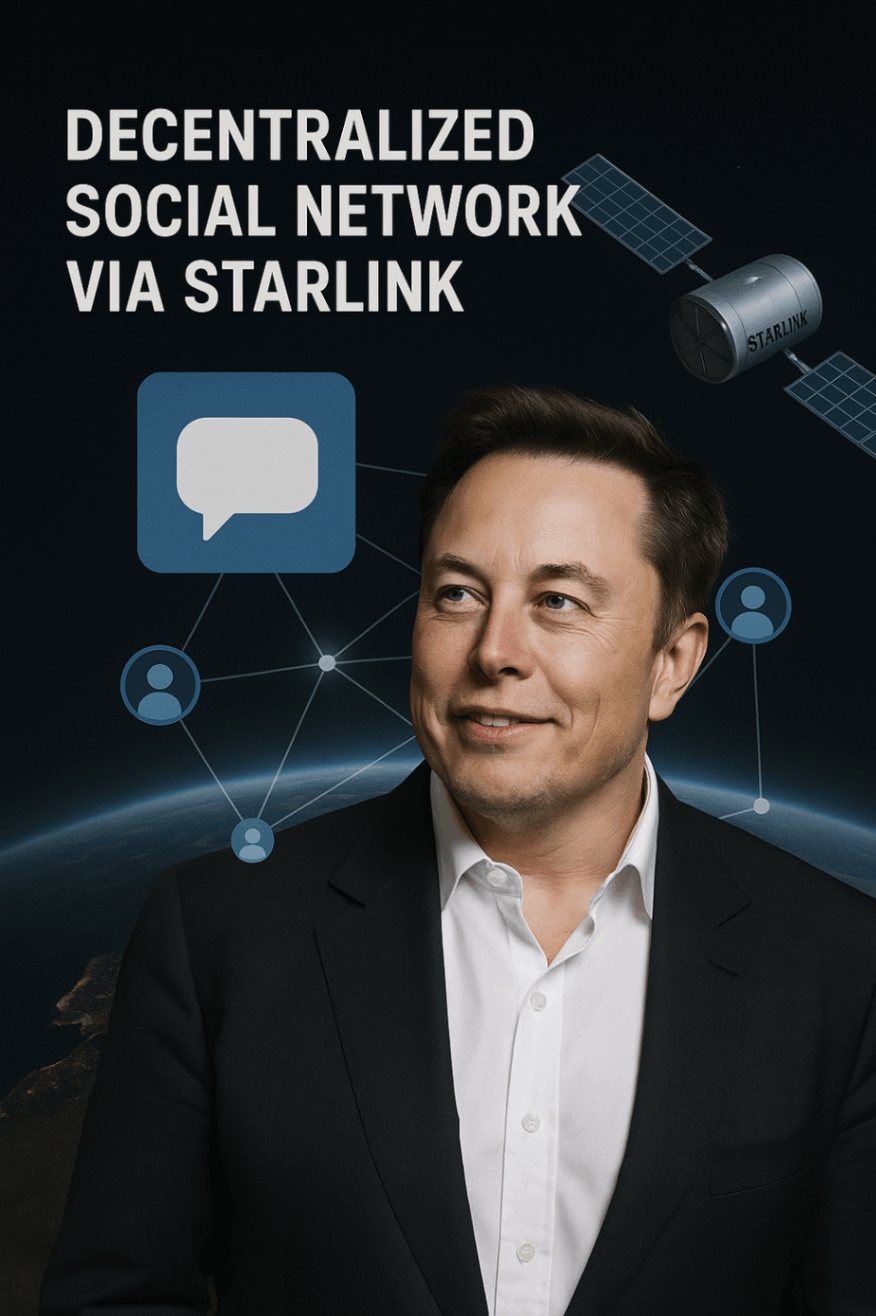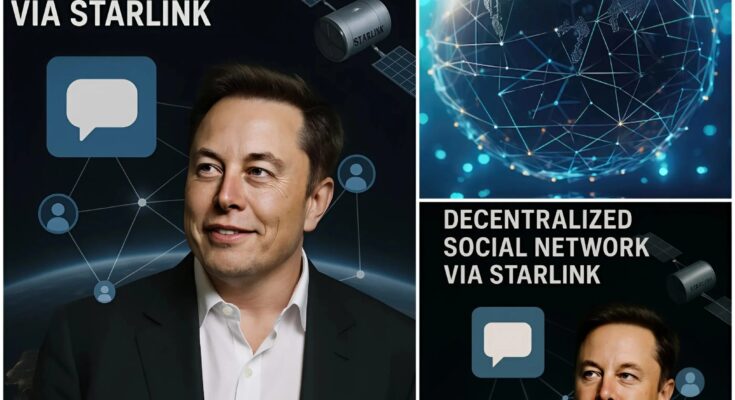Silicon Valley, CA — In a bold and potentially world-altering move, tech billionaire Elon Musk has revealed plans to create a decentralized social network that operates independently of traditional internet infrastructure — using his Starlink satellite constellation.

According to sources close to Musk and confirmed by a cryptic tweet posted late Wednesday night, the platform will be designed to operate “beyond the reach of any single government’s censorship.” This marks Musk’s latest disruptive venture, building on his growing concerns over online free speech and centralized control by big tech and authoritarian regimes.
A New Kind of Internet
The new network — currently code-named StarNet — would be powered entirely by Starlink, the SpaceX-operated satellite internet system that now blankets most of the globe with high-speed connectivity. Unlike traditional social media, StarNet would bypass terrestrial ISPs and state-controlled infrastructure, allowing direct access via satellite.
“This is not just a platform, it’s an escape hatch for freedom of expression,” said an insider at X (formerly Twitter), the Musk-owned company expected to play a major role in the rollout.
Decentralization at the Core
Early leaked documents suggest that StarNet would rely on a decentralized protocol, akin to Mastodon or Bluesky, but with an entirely new backend architecture optimized for space-based transmission. User data would be encrypted end-to-end and stored across nodes orbiting Earth, potentially making it immune to takedown requests and cyberattacks based on geographic jurisdiction.
Some analysts have already raised red flags. “It’s digital anarchy — governments won’t like it,” said Dr. Lena Rowe, a cybersecurity expert at MIT. “But from a technical perspective, it’s absolutely revolutionary.”
Controversy and Challenges Ahead

While many free speech advocates have welcomed the concept, critics warn of potential misuse. “Who moderates hate speech or criminal content if no one has jurisdiction?” asked Karen Liu, spokesperson for the Internet Safety Council. “This could open a Pandora’s box.”
Musk, however, remains undeterred. “Information wants to be free,” he tweeted, followed by a rocket emoji and the hashtag #StarNet.
No official launch date has been announced, but sources say a prototype platform is already in private beta with a select group of international users.
As always with Musk, the line between science fiction and reality continues to blur — and the world is watching.



